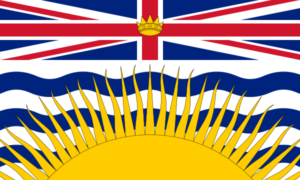 1 November 2021.
1 November 2021.
The Centre for Law and Democracy (CLD) is today releasing a Note providing in-depth assessments of the main proposed amendments to the Freedom of Information and Protection of Privacy Act (FIPPA) which are being proposed by the government of British Columbia, Canada, through Bill 22. The proposals represent a serious backsliding on transparency in British Columbia. Last week, CLD released its assessment of Bill 22 based on the RTI Rating, a sophisticated methodology for evaluating the strength of legal frameworks for the right to information. This Note provides an individualised evaluation of the major changes introduced by Bill 22, analysing their impact and proposing revisions, as appropriate.
“Bill 22 offers a few very modest positive reforms, but these are completely overshadowed by a number of very problematic proposals, as well as Bill 22’s total failure to address numerous imperative FIPPA reform needs,” said Toby Mendel, Executive Director of CLD. “Bill 22 should be rejected in favour of genuine reform made following an inclusive process of consultation.”
CLD’s Note proposes the wholesale removal of several provisions, as follows:
-
- The amendments to Schedule 2 which remove the Office of the Premier and the Executive Council (cabinet) from the scope of FIPPA’s obligations to disclose information.
- New sections 3(5)(c) and (d), which exclude certain metadata and deleted electronic records from the scope of disclosure obligations.
- New section 75(1)(a), which allows authorities to impose a “prescribed application fee” for requests for information.
In other cases, the Note proposes the reconsideration, or at least substantial redrafting, of proposed amendments, as follows:
-
- Amended section 76.1, allowing the minister to expand the coverage of FIPPA to public authorities in the public interest, is useful but FIPPA generally needs a much broader structural definition of the public authorities it covers.
- New section 3(5)(b), creating an exception for records which are unrelated “to the business of the public body”, should either be removed or replaced with an exception which is limited to the private use of publicly-run information systems or publicly-owned devices.
- New section 18.1, creating an exception for information which would “harm the rights of an Indigenous people”, should be redrafted far more clearly and precisely to focus on specific legitimate interests which need to be protected by secrecy.
Bill 22 has been portrayed by its proponents as a long-awaited reform of FIPPA. In reality, it does little to advance the right to information and much to undermine it. CLD calls on the government of British Columbia to drop Bill 22 and, instead, to engage in a democratic process of reform based on a proper human rights analysis and the results of the Special Committee to Review the Freedom of Information and Protection of Privacy Act process.
CLD’s Note on Bill 22 is available at: https://www.law-democracy.org/live/wp-content/uploads/2021/11/Canada.BC_.Bill-22.Oct21.FINAL_.pdf
For further information, please contact:
Toby Mendel
Executive Director
Centre for Law and Democracy
Email: toby@law-democracy.org
+1 902 431-3688
www.law-democracy.org
twitter: @law_democracy



